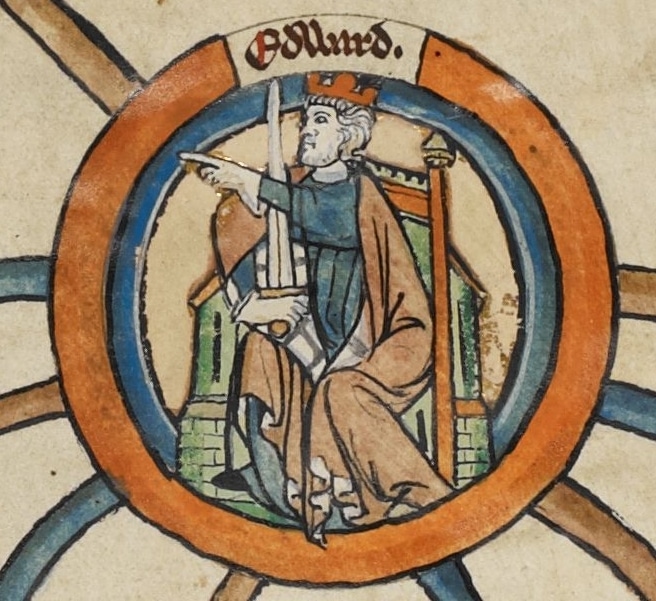King Edward the Elder is often overlooked due to how long ago his reign was, how many other Edwards there were in English history, and because of his father, King Alfred the Great.

Edward was born to Alfred and his queen Ealhswith of Mercia in 874. He took the throne in 899 after his father's death and would strengthen England throughout his reign.
King Edward Facts: Early Life
Edward was born in 874 to his father, Alfred the Great, and his queen Ealhswith of Mercia.
He was never known as 'the Elder' during his lifetime. The nickname came from historians to distinguish him from the later King Edward.
Edward and his sister were educated in Alfred's court. They had both male and female tutors and received a well-rounded education that consisted of teaching from the Bible and Old English poets.
King Alfred placed an emphasis on educating his children in liberal arts and proper etiquette for court.
Prince Edward and his sister, Princess Aelfthryth, received the same education, which was unique to its day.
King Edward Facts: Ascension
Edward was not guaranteed the throne. As had been the case with previous Saxon kings, the siblings of the king also had a claim. Alfred himself had taken the throne instead of his brother's children.
Alfred's older brother, Aethelred, who was king prior to him, had two surviving sons. One son, in particular, Aethelwold, was regarded as higher in status than Edward.
King Alfred did all he could to keep the throne in his line. He gave Edward a military command and promoted men who would be loyal to his son rather than Aethelwold.
Edward married Ecgwynn and had two children. He married again after her death in 899.
Alfred died in 899, and Edward took the throne and took the title King of the Anglo-Saxons. Aethelwold would not go quietly, and Edward would first have to deal with a rebellion headed by his cousin.
Aethelwold seized property, and in response, Edward raised an army and marched to Badbury Rings.
The two would jockey back and forth for a year. It all came to an end at the Battle of the Holme when Aethelwold was killed by a portion of Edward's army.
King Edward Facts: Reign
King Edward made a treaty with the Vikings in 906, but it did not take long for the Vikings to go back on their treaty and begin to pose a serious threat to the southern kingdom.
In 909, King Edward and Aethelflaeda, who, as a widow of the Mercian king, controlled her own army, launched a successful counterattack.
Aethelflaeda reconquered and fortified the Severn area and Western Mercia, while Edward did the same in East Anglia.
The sibling rulers were very successful against the Vikings and pushed them back. Aethelflaed successfully took York peacefully, but the city was lost again after her death in 919.
King Edward continued his campaign against the Vikings and continued to push them north. By 920, he had fortified Nottingham and Bakewell.
After many saw his success, they accepted him as an overlord. This gave him control of York, Wales, Strathclyde, and the Scots. Each of them recognized his power.
He also maintained control of Mercia through his niece, Elfwina. He also continued the same policy that his sister and his father implemented by building fortified towns throughout Mercia.
His control over Mercia did not go as smoothly as he would have liked, but after he successfully put down a rebellion in late 919, they fell in line.
King Edward had 13 children. 3 would go on to rule England after his death.
King Edward instituted the practice of trial by ordeal. It was a step in the right direction to what we have now, and while it was not a new concept, it was a remedy for a proven charge of perjury.
King Edward died in battle in 924 while putting down the Chester revolt.
Conclusion
King Edward is often overlooked, but his contributions can be argued to rival Alfred the Great. He squashed the Viking incursion and began to unify all of England under a central leader.
He also began to set up a organize the political structure of England with shires administered by shire-reeves, regional courts, and a centralized royal system of taxation.
He did much to lay the foundation for Medieval England.
